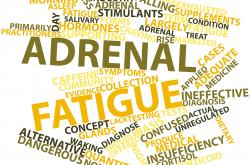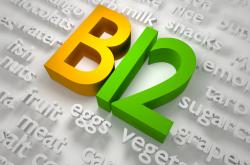The Rigors of Cancer-Related Fatigue
While there are many reasons for fatigue and many different types, there are several that stand out as particularly debilitating. Among those is the fatigue experienced by people suffering through the effects of cancer.
There’s a reason why people who are diagnosed with various forms of cancer refer to their struggle as “fighting” the disease. The fact is that many of the symptoms associated with that dread condition are so debilitating that they leave little room for anything that even remotely resembles a positive quality of life. Of all the rigorous symptoms involved, however, there is one that stands out as starkly more devastating than all the others. That symptom is fatigue.
Cancer Fatigue is Not Normal Fatigue!
Like MS fatigue and the exhaustion related to some other diseases and ailments, cancer fatigue is far different than just feeling tired. It is an all-encompassing feeling of being completely drained of energy. It is so severe that even sleep provides little if any relief. And it’s not just a momentary annoyance either. Instead, it can last for several years, and may even continue long after the treatment for the disease has ended.
As for that treatment, even it provides no relief. Many patients report even greater fatigue once they begin cancer treatment, and that exhaustion only increases as the process continues. Without proper care, cancer-related fatigue is so powerful that it disrupts nearly every aspect of a patient’s life.
Do You Have Cancer Fatigue?
If you’re struggling with your fight against this disease and suffer from low energy levels, you might wonder whether you have this type of fatigue. Here are some signs that might indicate that you do:
- If you suffer from an inability to complete everyday tasks
- If your thoughts and memories seem clouded
- If your extremities often feel weighted and unresponsive
- If you’ve let your personal appearance suffer due to your tiredness
- If you feel exhausted after virtually any activity
- If you wake up in the morning and steel feel completely drained
If you’re experiencing those effects during your cancer, then there’s a good chance that you are indeed suffering from cancer-related fatigue.
What Causes Cancer Fatigue?
Cancer fatigue is a form of exhaustion that probably has many causes – some related to the illness itself and others resulting from the treatment methodologies. Though the exact causes are unknown, there are some things that are certain:
- Red blood cells are typically at a low level during cancer. That can disrupt the body’s ability to deliver nutrients to the cells, which means that those cells lack the necessary components for metabolizing the energy the body needs to avoid fatigue
- Cancer and its treatments tend to suppress appetite. That too prevents the body from getting the fuel it needs.
- Cancer patients are often too sick to get motivated for exercise. That lack of activity can result in greater exhaustion.
- Cancer is a stress-inducing disease. That increased stress can result in a body and brain that are soaked in cortisol, disrupted hormonal patterns, and weakened adrenals. In short, it’s a perfect recipe for exhaustion.
- The disease often prevents patients from obtaining sound sleep – something that can easily result in fatigue.
- Patients also tend to suffer depression, which only serves to exacerbate and feelings of fatigue.
How Can You Manage Cancer Fatigue?
Cancer is a serious illness, and its symptoms must be managed carefully. When it comes to fatigue, there are certain things that every patient should do:
- Conserve energy as much as possible. Reserve your energy for those things that are most critical on your list of priorities. Learn to say no.
- Rest when necessary, but remain active as much as possible. When it’s time to sleep, sleep. When it’s time to get things done, do what you can. Above all, remember to avoid lengthy periods of activity. Break up large tasks into smaller chores with breaks in-between.
- Eat as well as you can. That means plenty of fluids, fruits, vegetables, and healthy protein. Your body needs calories and nutrients to deal with both the disease and the treatment.
- Listen to your doctor. Cancer is not a disease that lends itself to self-management. Work with your cancer specialist to determine the right program for you.
Cancer is among the most feared diseases on Earth, but people routinely win their battles against it. That hopeful fact should inspire you to do all you can to not only survive this disease, but learn to thrive as you do so. With the right effort and commitment, you can regain some portion of quality of life and reduce the impact of cancer-related fatigue.
You might also be interested in:
- Feeling Tired vs. Cancer-Related fatigue. http://www.cancer.org/treatment/treatmentsandsideeffects/physicalsideeffects/fatigue/feeling-tired-vs-cancer-related-fatigue
- Cancer fatigue: Why it occurs and how to cope. http://www.mayoclinic.org/diseases-conditions/cancer/in-depth/cancer-fatigue/art-20047709
- General Information About Fatigue. http://www.cancer.gov/about-cancer/treatment/side-effects/fatigue/fatigue-pdq
- Cancer-Related Fatigue. http://www.webmd.com/cancer/fatigue-cancer-related
- Treating cancer fatigue. http://www.cancerresearchuk.org/about-cancer/coping-with-cancer/coping-physically/fatigue/treating-cancer-fatigue



















Leave a comment